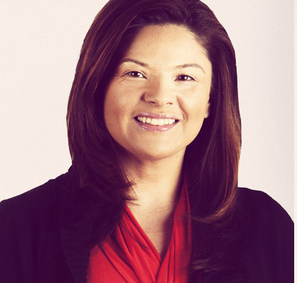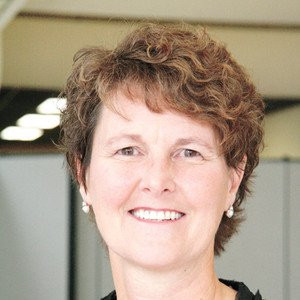Carolyn Kyle: Career & Technical Education is Still About Education
Wednesday, June 11, 2014
Rhode Island’s economy has been struggling for years, and it is natural that we turn to our education system for some of the needed solutions. The presumption is that a desire to improve our economy was the motivation for some in the business community to propose legislation, House Bill H8204, which seeks to reinvent Career and Technical Education (CTE) in Rhode Island. Unfortunately, the proposed legislation is not the product of a coordinated effort that involved all of the experts in the field. Can you imagine having experts at your disposal on a complex issue and not including them in the development of a solution?
We have learned over the past few weeks that some members of the business community have been meeting for several months to redesign CTE in Rhode Island. Business leaders have stated that a desire to achieve “consensus” was the justification for exclusion of professional career and technical educators from the legislative drafting process. How myopic a thought, that we should avoid discourse for the sake of expediency, particularly when we are talking about our children!
While some would lead us to believe that this legislation is primarily about jobs to grow the economy, such emphasis is misplaced. First and foremost, the focus of all segments of our education system, whether they be public schools, private schools, magnet schools, or career and technical schools, should be on our students.
GET THE LATEST BREAKING NEWS HERE -- SIGN UP FOR GOLOCAL FREE DAILY EBLASTDirection, not intention, gets you to your destination.
At the William M. Davies, Jr. Career and Technical High School, we recognize that education is the life blood for innovation and excellence in all we do across the technical training and career development. Academic education is the primary calling of all we provide to our students. Yes, our students graduate with career and technical skills, but those skills are built on a solid academic program with rigor that will assist them in being community members of excellence.
Students in Davies’ Class of 2014 are continuing post-secondary education at institutions that include the University of Rhode Island College of Pharmacy, United States Air Force Academy, Brandeis University, Rhode Island College, and Roger Williams University. Over eighty-five percent of Davies’ graduates earn nationally recognized industry-based certifications in their chosen technical training program prior to graduation. A broad network of strategic business partnerships provides Davies students and teachers with access to top industry equipment, technology and training through on-site training centers and work-based learning experiences at their facilities that prepare students to begin careers with prestigious employers such as CVS, Lifespan, and Yushin America, just to name a few.
Davies has been named a National Blue Ribbon School by the United States Department of Education. This national program recognizes Davies as a school where students perform at very high levels and where significant improvements have occurred. Davies is a Rhode Island example of a model that other states look to emulate, and a design in organizational structure and instructional delivery that has achieved proven results. With the continued support from educational leadership, the General Assembly, the business community, industry partners, students and their families, Davies will continue to remain a model in CTE.
Over the past six years, Davies has made significant academic gains. Analysis of Reading scores from NECAP testing show forty-seven percent of students were proficient in 2008, as compared to ninety-one percent being either proficient or above proficient as of 2013. Additionally, achievement gaps have been successfully narrowed in all subgroups: economically disadvantaged, African-American, Hispanics, and special education students. Analysis of Math scores also reveal significant gains for all students tested and among identified sub-groups as well.
John Dewey, one of America’s most prominent educators and philosophers, said that, “Education is a social process. Education is growth. Education is not a preparation for life; education is life itself.” Our entire education system is built on a common principle of “public good.” The history of our school system is premised on developing a better educated citizenry while helping the state to prosper. Our schools are more than short order cooks for the immediate appetite of profit centers that enrich a few. A few in the business community behind this legislation seem to disregard the fact that Career and Technical schools are, and always should be, about the public good built on a system that values the academic process and where our children are not viewed as simple commodities.
Every time we are given a new draft of H8204, we have more questions. This legislation may have some seeds of improvement that we can all rally around. However, for these seeds to blossom into fully-matured educational programs, the Legislature should refer the bill to a study commission, where the involvement of all stakeholders will yield a path that is embraced by all.
I implore our friends in the Legislature to consider the words of John Wooden, “If you don’t have time to do it right, when will you have time to do it over?”
Related Slideshow: RI Experts on the Biggest Issues Facing Public Education
On Friday November 22, the Hassenfeld Institute for Public Leadership at Bryant University, the Latino Policy Institute of Roger Williams University, the Rhode Island Association of School Committees, the Providence Student Union, and RI-CAN: Rhode Island Campaign for Achievement Now will host Rhode Island leaders in the public and nonprofit sectors for a symposium on "the civil rights issue of the 21st century, adequacy and equity and the State of Education in Rhode Island."
Weighing in on the the "three biggest factors" facing education in the state today are symposium participatnts Gary Sasse, Founding Director of the Hassenfeld Institute for Leadership; Christine Lopes Metcalfe, Executive Director of RI-CAN; Anna Cano-Morales, Chairwoman of the Board of Trustees, Central Falls Public Schools and Director, Latino Policy Institute at Roger Williams University; Tim Duffy, Executive Director, RI Association of School Committees; and Deborah Cylke, Superintendent of Pawtucket Public Schools.
Related Articles
- Julia Steiny: The Education Non-System Sets Kids Up for Failure
- Chafee’s Budget: Education
- PODCAST: Do the RI Gubernatorial Candidates Support Education Reform?
- Do the RI Gubernatorial Candidates Support Education Reform?
- NEW: Chafee Nominates Dennis Duffy to RI Board of Education
- Rhode Island Leaders Come Together for Education Awareness Week
- Education Awareness Week in Rhode Island
- Do We need Any More Proof RI Students Need an Education Bill of Rights? - Gary Sasse
- Gary Sasse: Adequate Education: The Civil Rights Issue of Our Time
- Roach: My Education Crusade - Why Suspension Stats Don’t Matter
- RI’s Greene School Receives U.S. Department of Education Award
- NAACP Providence Will Celebrate Brown v. Board of Education Anniversary
- NEW: Smiley Unveils Education Plan for Providence
- Highest Ranked RI Schools by RI Dept. of Education
- Bottom Ranked RI Schools by RI Dept. of Education
- NEW: Pell Unveils Education Strategy for Rhode Island
- State Report: Fung’s Education Reform Plan + Big Grants for RI
- Don Roach: My Education Crusade - Finding the Secret Sauce
- Education Experts Raise Questions About CCRI Spending
- RI Experts on the Biggest Challenges Facing Public Education
- How To Secure Financial Aid and Scholarships For Your College Education
- Degree By Design: The Accessible Approach to a College Education
- PODCAST: Education Experts Raise Questions About CCRI Spending













